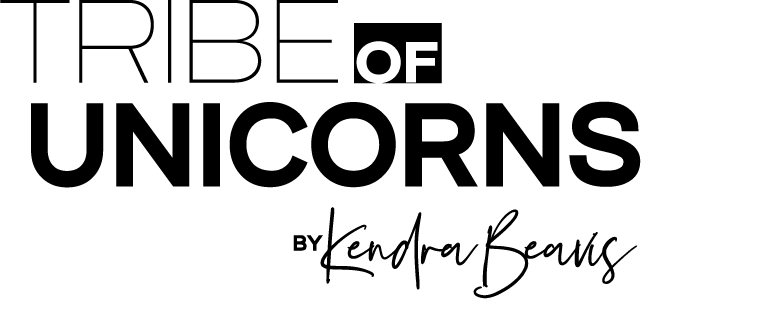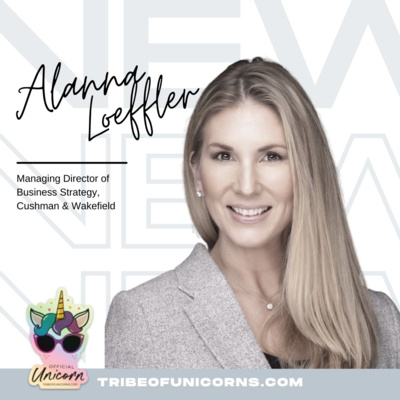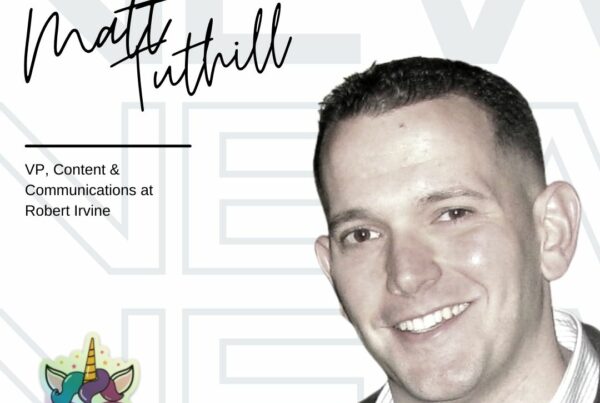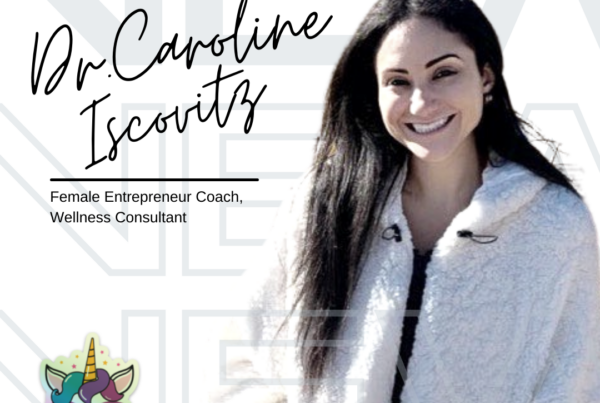From Urban Planner to Entrepreneur
Episode 6: Lindsay Ford
Hey guys. This episode is so great! I got to speak with Lindsay Ford, a parenting mentor, certified in Positive Discipline. She’s talking about how she went from leaving her management job in urban planning to finding her passion and creating a thriving business. Listen up and grab a cup of coffee.
Lindsay helps moms interpret what their child is really saying when they act out and gives them the strategies they need to restore a sense of calm and cooperation back into their homes.
AND!!! Most of us are having to face this issue right now: Working at home with your kiddos. Check out her guide here
”when it came to quitting my job and walking away from a significant paycheck and into something unknown, it just felt like the next logical step. Like it just felt so right like I had no other options. So it wasn't this giant leap of faith. It was just like, the next logical step. So I would say if you're not ready, and that scares you, then then you're not ready.
Lindsay FordPositive Parenting Mentor
Transcript
Kendra 0:00
Welcome, Lindsey.
Lindsay 0:01
Thanks so much for having me.
Kendra 0:02
No problem. I’m excited to have you on today. So why don’t you tell us a little bit about your journey and how you got to where you are today?
Lindsay 0:12
Sure. I am a positive parenting mentor, and I never ever thought I would be a business owner. I would never I never thought I would be teaching parenting. I started my career in urban planning, which is completely different. Yeah. And it was just an evolution. I knew planning was not something that I want it to be in the long term, but I didn’t really have a better option. And I sort of worked my way up into a management position and got there and was like, this is I just I remember like working my whole career towards that, that moment, and then getting that promotion and being like, Oh, is this gonna Be the rest of my life. And then I, and then I started on this journey of like, you know, that personal development side, the like meditation mindset, and then I had kids and that completely changed me. And that’s when I started my blog about parenting. And, and then two years later I, I transformed that into a business that I never had anticipated. And I’ve just been, you know, I just recently quit my full-time job as an urban planner, and I’m now doing this full time. So it was definitely a long progression. You know, from the moment that I kind of realized I didn’t want to be in urban planning in that management role to now It’s been eight years. So it’s been a journey. Yes.
Kendra 1:50
So, right. So you have kids, well, you get the job like, quote-unquote, job and you get there because you don’t Like it was that? Totally. I mean, I know, I’ve talked to so many people that it’s happened to me. Um, you know, what was your mindset at that point?
Lindsay 2:11
So it was like, I had just been like going after that for years and just had sort of tunnel vision on that. And then and then after, it was just like, it was almost like a hangover. I was just like, oh, like, what? Like, what is this the rest, like, it was this the rest of my life and it took me a few years of, like, really, like some deeper reflection to realize that, that was my dad’s dream. That was never my dream. You know, I was kind of conditioned, like, go to university, get a good government job, you know, work your way up and like, and then you’ll be set for life. And so I went like, and, and it wasn’t like, he intentionally did that as he wanted, you know, but he dreamed up for himself and so he just kind of talked about it was, yeah, it took me a few years to unravel, like, Oh, this is my dad’s dream. This is not my dream, what do I want? And so it was, Well, yeah, yeah, it took me a while to figure out what I wanted. And it was just more. I just kind of stumbled into the parenting in the sense that like, I thought parenting would come naturally to me. And then once my daughter got to the toddlers, I was like, What the heck is happening?
And then I was like, okay, so I need some help. And then I discovered positive discipline. And I started using the strategies and they were really easy and they really resonated with me in the sense that they were rooted in this, you know, deep respect for kids and that they are like, you know, these important human beings that are part of the family and, and like, are not somebody to be controlled, rather like you were working together as a team. So just like that, The philosophy and I decided to get us certified in it because at the time I was doing my blog, I was sharing these strategies Anyways, I’m like, oh, it’ll just add a little bit of credibility to what I’m saying. And as part of that certification, I had to teach a class. And so I got some of my girlfriends together who are also moms, we had a wine night, I taught my first workshop, and I loved it. And, and so I just started doing workshops. And, and now I’m doing this full time. So yeah, it’s just, it’s pretty cool how it happened, even though it was like it’s been a long process.
Kendra 4:37
Yeah, well, so. I mean, were you a writer previously before you started your blog?
Lindsay 4:42
No. And And the funny thing is, is like I really came out of high school, especially believing I was a terrible writer like English was, like, always my worst subject. And I just, I really believe that I was terrible at writing. Even when I started into my career, and then I got better and more like I understood it was I knew it was something that I had to be good at. Because, you know, in urban planning, there’s a lot of communication like a high level of communication is required. So I just really focused on getting better at and that was more like technical writing. And then the blog was the first time I’d ever done creative writing in my, in like, since high school. And it was, it was hard at first because it was like really letting go of the structure of you know, how you’re taught to write and just like writing, I guess from the heart and more from creativity and flow perspective. And that was, it was difficult at first and it was like clunky at first, but I’ve discovered that I am actually a pretty good writer.
Kendra 5:55
You have some beautiful posts there. So you know, I really connected with what you were saying. What does that look like you’re at you had your first child at that point?
Lindsay 6:11
Yes, I started the blog when she was about seven months old.
Kendra 6:15
Okay, and did you just feel like this is gonna be a great outlet for me or I have things that I need to share.
Lindsay 6:21
It was just, I don’t know, I just like I needed there was stuff inside of me that I needed to get out. And like, you know, even six months before my husband was talking about starting a blog, and I was like, Oh, that’s something I would never do. And then and, and it just ended up being like, I just needed stuff. I just needed to get stuff out. I didn’t know what I was doing. I was very nervous to share it. I was very scared of like, telling people I was doing it. And I just kept going and even like, you know, as I was still working full time and doing this on the side. Like, I still needed to keep doing this. And it was something that just like would not go away. And anytime like I got too busy for it, it was like it always called me back. So
yeah, I love that sounds like something you just had to do.
Kendra 7:21
Did you start to gain an audience there and then get into the positive parenting certification or did it kind of happen simultaneously?
Lindsay 7:31
I think it just it happened simultaneously. I wish I could say my blog exploded but it really didn’t. Slow and steady. It was just the positive parenting piece of it just came as I learned. I learned it in my own parenting and started to share it and then and then with the certification I started to be a little bit more intentional once I started teaching classes and I had a bit more of a purpose. Yeah, in the business sense, I Oh, I feel like I’ve always had a purpose. But yeah,
Kendra 8:10
I think so many people are some of the best business owners end up being the people that kind of solved their own problem and then become an expert in it and love it so much. They want to just share it with the world because they’ve seen the success in how it affected their lives. I mean, does that kind of ring true?
Lindsay 8:24
Yeah, absolutely. At the beginning with the positive discipline stuff, there were very, very simple strategies that I could not believe that I was seeing behavior differences in my child, and I was like, the whole world needs to know about. Yeah, so it was, yeah, definitely solving my own problems.
Kendra 8:51
It seems like it might be outside of what the norm is as far as your tips. The style of parenting goes and how would you describe it? And what do you think people could gain from learning this method?
Lindsay 9:08
Right? So basically, there’s, you know, when you think about behavior, so like, you know, in, in young kids as an example, like hitting, biting, name-calling, temper tantrums, all those things, if you picture an iceberg, that’s what we see on the surface, but there’s so much more going on underneath. Like, there is a reason your child is acting like this. And it’s often not a complicated reason. In terms of, like, you know, sometimes it’s they need attention, sometimes it’s they need control, but always it comes down to how connected they are to you and the relationship, how they feel, you know, if they feel accepted for who they are. That sort of that quality of relationship in that gift. enrollment. And all we all have these needs like even as adults, like we need attention, we need to feel in control.
Kendra 10:08
And I was just thinking that like this could definitely ring true for adults as well.
Lindsay 10:13
For sure. Yeah, definitely. So it’s just like it’s recognizing that kids are human. They are human beings. First, they have emotions, they have feelings, they have their own ideas about how things should be. And it’s about parenting is about the relationship and navigating each other, each other’s emotions and each other’s perspective. So it’s not necessarily like a lot of people think, you know, when they hear positive discipline or positive parenting, their mind, mind kind of immediately goes to well, if there are no consequences, then you’re just like letting your kids get away with it. But it’s, it’s more about understanding, you know, the basic needs of your child and so expectations and then training them to meet those expectations. So not just saying like, not just expecting them to, you know, go sit for two hours in a restaurant when they’re two years old. Like how are we actually training them to, you know, stay at the table and use their cutlery and, you know, try new foods and like, like, how are we training them at home? And then how are we setting the expectations like, you know, in the car ride on the way to the restaurant, like, Okay, this is, you know, we’re going to a restaurant and this is like, how we need to behave at a restaurant and you know, what, if there’s, if there’s running around and screaming or whatever that needs to happen, then we are going to the car and we can do that in the car. And yes, it’s gonna suck for a little bit.
Lindsay 11:48
But, but they don’t want to be removed from the social scene either. So I find like, if there is, you know, taking them out of a restaurant as an example, is Like a great way to handle things because they’re not going to want that but at the same time if they are having like legitimate issues in terms of like say they’re having a temper tantrum or they’re feeling so overwhelmed or whatever, then you’re going to take them out of that public scene, you’re gonna feel less pressured to get them under control because nobody, you and your car and then you can go back in and you’re going to be able to be more level headed there to help them calm down and then you go back in together so it’s, it’s about understanding what they need in those moments, and, and also training them like how to behave over the long term because at the end of the day, you want them to have an awareness of the emotions and a lot of times, you know, when I think back to how I was parented, when I was younger, like my parents used to paint my face, wash my mouth, it was so big, but bad word and, but those things like they taught me that, you know, emotions were good as long as they were like the good ones, but as soon as As it came to, like, like, like if I didn’t want to share my toys, or I felt jealous that my brother was getting attention, like I, and then I did something I acted out. So I knew those emotions weren’t bad, but I had no idea what to do with like feelings of jealousy before it turns to like rage. Like I don’t know how to do that. So, it’s, it’s recognizing that you know, they just, they’re in a learning process.
Kendra 13:24
You have. It fascinates me that this, you know, obviously, you know, you have life coaches, and you have coaches for all sorts of stuff. I’ve never really run across a parenting coach before. Can you tell me a little bit about the structure of your business and how that was created? Sure.
Lindsay 13:42
So I do one-on-one coaching. I also teach classes, both in-person and online.
So, you know, oftentimes parents, for the most part, will come to me when they’re in crisis.
Lindsay 13:58
There are some that do come more proactively, but it’s sitting down with them and going over, you know, their specific situation, the types of issues that they’re having with their child. And it is, I do not assess the child, I look at the parents because at the end of the day, it’s about the relationship. So you might notice with your own kids. They might behave differently with you versus with your spouse or their grandparent or with their teacher. So it’s, it’s a lot about the relationship. So I help parents, you know, I listen to what they have to say, I give them in a one on one coaching scenario, I give them a custom plan that is like, Okay, this is what is likely going on with your child in terms of like, you know, maybe it’s attention-seeking behavior, and this is why it happens. And here’s some stuff Geez, to deal with that, and we want to treat it at you know, we want to get rid of those, that attention-seeking behavior. So like things like whining or hitting or even biting, interrupting like those types of things. But we also want to get rid of and not get rid of, but we want to, you know, address the root cause we want to dress why they’re feeling the need for attention and oftentimes, like attention-seeking behavior as an example, they feel the most important when you are paying attention to them. So they want to do they’re going to do whatever it takes to get your attention so they feel like they matter to you. So it’s that feeling and it goes back to that connection, that feeling of good enough and that earthing so we look at strategies at all levels. And we just work. It’s, it’s, um, you know, we test different strategies. And I always say to parents, like, you know, test like, try, like pick one thing and try it for a week and then go Assess at the end of that week to see what’s working because it’s about trial and error, really at the end of the day. So and if your child is used to you reacting in a certain way, and you switch it upon them, sometimes they actually get worse before it gets better because they’re acting that way for a reason because they’re used to, they want a certain response. And if you and if they’re not getting that response, they might up it a little bit to see if they can get that response before switching tactics so so with a one on one coaching, it’s, it’s, it looks like that and then I have some online courses that are self-paced. So if they’re not live, they’re pre-recorded videos. By setting limits without punishment course is really like a plug and play framework. So it is a framework to set a boundary or limit or rule and it walks you through the process, there are strategies and things that I give you in that, but it’s if you understand the process, really, your imagination is the limit in terms of the strategies you use to implement that. And then, and then I have my in-person classes as well.
Kendra 17:18
Very cool. So, you know, you’re in urban planning and you’re you have this other business that you’re building on the side. And so many people are in that position where they have this thing, that they really is their passion. And, you know, it’s always the question of, do I leave my job and go 100% all-in and possibly make a poor financial decision for my family? I mean, what made you do you feel like the time that you spent building the business was an appropriate amount of time? Or like what kind of advice you have for someone looking to do something similar?
Lindsay 17:57
Yeah, I would say as painful As it is, there is no rush. So, in my particular situation, it felt like a long process. But at the same time when it came to quitting my job and walking away from a significant paycheck and into something unknown, it just felt like the next logical step. Like it just felt so right like I had no other options. So it wasn’t this giant leap of faith. It was just like, the next logical step. So I would say if you’re not ready, and that scares you, then then you’re not ready. I also did something. Tim Ferriss, I don’t know if you know Tim Ferriss, but he has something called fear setting. And he does a TED talk on it. And I found that exercise super helpful when it came to like should I quit my job? I went through that and it was because it basically that project walks you through like all of your like crazy what if like everything that could go wrong and then like what something that you could do to mitigate that and you kind of realized through that process that there is nothing that is not fixable if things go sideways.
Kendra 19:15
So that was a really big one for me. And it sounds like you’ve also spent all that time kind of beating the business to walk into. So you weren’t necessarily starting from zero.
Lindsay 19:26
Yeah, I wasn’t starting from zero but it was nowhere close. Like it’s nowhere to my previous so it seems illogical to many people.
But it just felt like the next logical step though once I got there.
Kendra 19:46
I think you know, also, especially in I mean when we’re recording this is what is today, April 8, so we’re smack dab in the middle of the Coronavirus situation going on in the US. And I feel like a lot of people are sort of reevaluating, like what success and what happiness is and how they want to spend their time. I think there’s there’s a huge amount of bravery in going after your passion and creating a business that you actually love being in every day. Yeah, so it’s definitely something to be commended on.
Lindsay 20:20
Yeah, definitely. Definitely feeling like it was just a big relief when I quit my job.
Kendra 20:26
Very cool. I love talking to people who kind of found their niche and have, you know, created a successful business out of it. And you know, I think you’re, it’s a short life and to be able to do something that you absolutely love doing every day is just super cool on admirable.
I’m gonna have all of Lindsay’s pertinent links in the post that goes along with this. But if you go to her Facebook group on wholehearted parenting, or thinkfeeldecide.com She’s also on Instagram as Lindsay @thinkfeeldecide.
Lindsay 21:08
thank you so so much and yeah, I hope you stay safe and healthy
